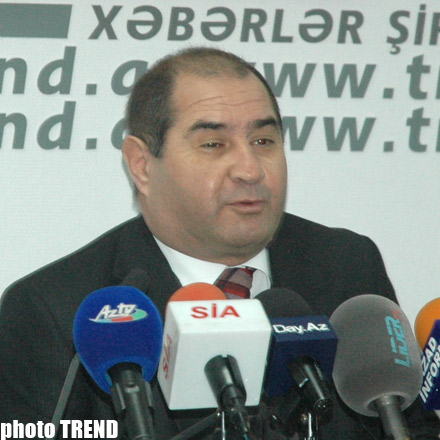Azerbaijan, Baku, Aug.3 / Trend, I. Isabalayeva /
The European Union may increase its involvement in the resolution of the Nagorno-Karabakh conflict in the near future, Center for Political Innovation and Technology Director Mubariz Ahmedoglu said at a press conference today.
He said Armenia maneuvers in negotiation process on the Karabakh problem, blackmailing Russia with possible approximation with Turkey.
"Serzh Sargsyan threatens Russia with Armenia's integration with Turkey. And Russia is really afraid of this. With preventing Armenia's integration with Turkey, Azerbaijan helps Russia, which Russia does not understand," Ahmedoglu said.
He stressed that the relations between Turkish and Armenian businessmen are expanding.
Ahmedoglu expressed his attitude to Sargsyan's statement about territorial claims against Turkey. He said none of Armenian leaders has made any official territorial claims against Turkey. It is the first time in modern history.
Ahmedoglu added that some politicians in Turkey assessed the Armenian President's statement as a declaration of war against Turkey.
He also commented on the situation in Armenia.
"Armenia is considered the second worst country in the world due to its economic indicators. These data, published by "Forbes" magazine, caused serious confusion in the Armenian society. People are dissatisfied with the socio-economic situation, they leave Armenia. Now no country openly supports it. Armenian myths caused a boomerang effect. Number of investment projects will decrease in Armenia, the socio-economic situation will worsen, emigration will increase and demographic situation will worsen," Ahmedoglu said.
The conflict between the two South Caucasus countries began in 1988 when Armenia made territorial claims against Azerbaijan. Armenian armed forces have occupied 20 percent of Azerbaijan since 1992, including the Nagorno-Karabakh region and seven surrounding districts.
Azerbaijan and Armenia signed a ceasefire agreement in 1994. The co-chairs of the OSCE Minsk Group - Russia, France, and the U.S. - are currently holding the peace negotiations.
Armenia has not yet implemented the U.N. Security Council's four resolutions on the liberation of the Nagorno-Karabakh and the surrounding regions.






